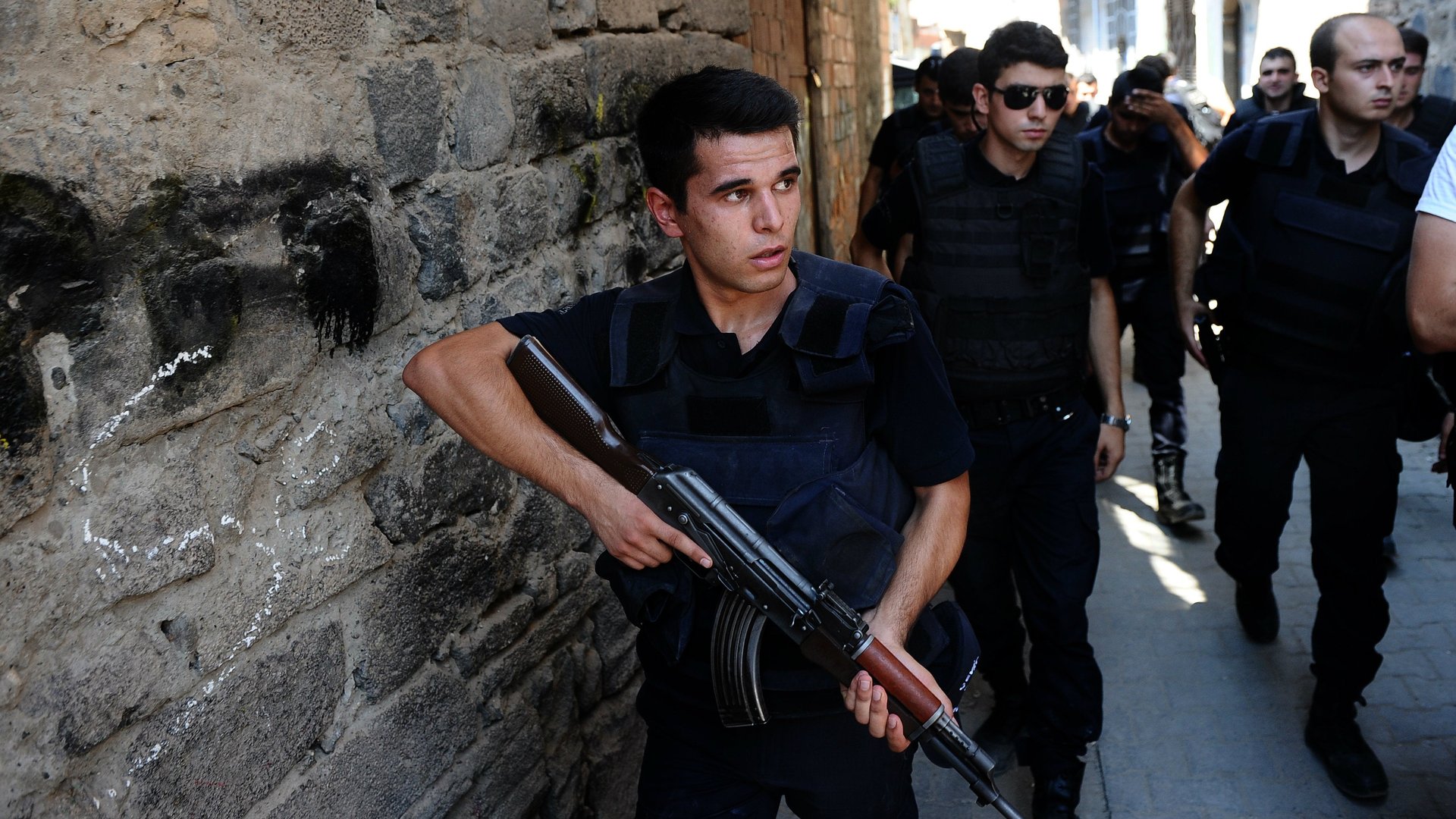Turkey’s president loses favor in a parliamentary election, and so decides to just run another one
How can an autocratically-minded president regain his fortunes if he loses his parliamentary majority? The answer, apparently, is to stir up a war, tie up politics in knots, and then swoop back in to fix things.


How can an autocratically-minded president regain his fortunes if he loses his parliamentary majority? The answer, apparently, is to stir up a war, tie up politics in knots, and then swoop back in to fix things.
So it is that, in a speech today (Aug. 19), Turkish president Recep Tayyip Erdogan made official what’s been expected for weeks—he called for new elections, just two months after June 7 voting resulted in him losing control over the country’s parliament. Only “the will of the people” can extract Turkey from its political impasse, Erdogan said.
It’s an impasse, however, that Erdogan himself created. It’s meant to reimpose his will on Turkey, where he’s been the dominant political actor for 13 years.
The political gamesmanship in Turkey is important because of the country’s pivotal role the Middle East—among the issues that Erdogan heavily influences are the fortunes of the Islamic State (ISIL). He also has a primary role in the viability of Iraqi Kurdistan, and Israeli plans to export their new natural gas riches.
With local officials looking the other way, ISIL has used Turkey as a route to smuggle people and goods of all types. For years, Erdogan has been ambivalent at best toward his NATO allies. But three weeks ago, he opened air bases for the use of US bombers in Syria, and ordered bombing runs himself on ISIL positions.
Erdogan’s shift is in part explained by the threat ISIL poses to Turkey (in an attack today, unidentified assailants opened fire on the Dolmabahce palace. That followed ISIL urging Turks on Aug. 18 to overthrow Erdogan). But the shift is also in keeping with the president’s domestic political strategy—two days after the bases agreement with the US, he started to bomb camps of the PKK, Turkey’s Kurdish militant group, in northern Iraq.
The juxtaposition of the moves gave Erdogan political cover by allowing him to claim to be acting against a broad terrorist threat, rather than just attacking his political opponents.
In the meantime, the pro-Erdogan prime minister, Ahmet Davutoglu, stalled and stalled in his “negotiations” with opponents to form the government, which conveniently resulted in a stalemate.
The bombing of the PKK—along with the sabotage of a new government—ultimately allowed Erdogan to force new elections and to load the deck against the Kurds, who are the singular reason he failed to obtain a parliamentary majority.
In the June 7 election, the pro-Kurdish People’s Democratic party (HDP) won 12% of the vote and 80 seats in the 550-seat Parliament. That’s what denied him the outright majority. Since July 25, the military and the PKK have engaged in tit-for-tat attacks, including a roadside bomb today that killed eight government soldiers in the southeastern province of Sirt. The military blamed the attack on the PKK.
Technically, Davutoglu can still somehow form a new coalition government by the constitutional Aug. 23 deadline for doing so. But that’s unlikely since he officially informed Erdogan yesterday (Aug. 18) that he has thus far failed to form a government, suggesting that he’s given up.
As such, Turkey will likely host a spectacle of new parliamentary elections in the fall. Turks can again reject Erdogan’s megalomania, return more or less the same folks to office, and force him to become a mere political mortal who lacks a parliamentary majority.
Of course, Erdogan’s hope is that the PKK’s attacks on government positions will lead to a loss of HDP popularity, and that the party will fail to cross the 10% threshold necessary to qualify for any seats this time. And if not, he might just find a new political maneuver to deny them seats.